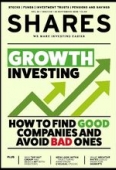Archived article
Please note that tax, investment, pension and ISA rules can change and the information and any views contained in this article may now be inaccurate.
Why you shouldn’t give up on the UK despite miserable performance

The recent and long-term performance of UK stocks is disappointing. Just look at how the FTSE 100 has performed against other global indices year-to-date and again since the Brexit vote.
It suggests that ever since the result of the 2016 EU referendum, political risk has deterred investors from putting money into UK stocks, not helped by the FTSE being over-exposed to so-called ‘old-economy’ businesses like oil and gas and mining, and under-exposed to the more buoyant tech space.
Figures from the ONS show inward flows of foreign direct investment dropped from £192 billion in 2016 (a figure inflated by large M&A deals as foreign predators took advantage of a collapse in sterling) to £80.6 billion in 2017 and £49.3 billion in 2018.
Lindsell Train fund manager Nick Train recently observed that luxury goods firm Burberry’s (BRBY) shares were down more than 30% year-to-date while stock in its global peer Prada was essentially flat.
‘Now, Prada is not Burberry, nor vice versa, but there are real similarities in the investment case; not least that both still have strategic issues to work through to become better businesses,’ he wrote.
‘It is hard to analyse the difference in share price performance between the two as being anything else than a punitive discount being placed by global investors on a company that is listed in London, rather than Hong Kong.
‘Apparently global investors have an aversion to the UK stock market, but this is, in some cases, getting ridiculous.’
WHY IT MATTERS
This is a problem for ordinary investors. We all can and should have some global exposure in our portfolio, however it is only natural we will have a bias towards domestic stocks and funds.
After all, these are the businesses and products we are most familiar with and we don’t have contend with things like movements in global exchange rates when we buy them.
Should investors give up on the UK entirely? It’s a topic that demands in-depth discussion and it’s one we will return to. However, the answer to that question is no.
It might be the worst possible time to consider making such a move. Judging by the recent movements in the market investors are pricing in both a second wave from coronavirus and a hit from a disorderly end to the Brexit transition period at the end of 2020.
The global market barometer from data provider Morningstar suggests the UK market is trading at a 19% discount to its estimate of fair value – this compares with 6% for Germany, 11% for France and a 1% premium for the US.
Selling now would mean crystallising losses just when everything feels at its most bleak. Be patient, the UK market is not a lost cause.
Important information:
These articles are provided by Shares magazine which is published by AJ Bell Media, a part of AJ Bell. Shares is not written by AJ Bell.
Shares is provided for your general information and use and is not a personal recommendation to invest. It is not intended to be relied upon by you in making or not making any investment decisions. The investments referred to in these articles will not be suitable for all investors. If in doubt please seek appropriate independent financial advice.
Investors acting on the information in these articles do so at their own risk and AJ Bell Media and its staff do not accept liability for losses suffered by investors as a result of their investment decisions.

 magazine
magazine









